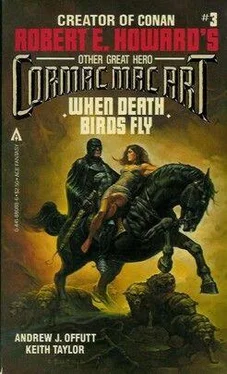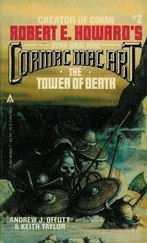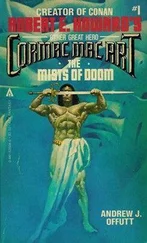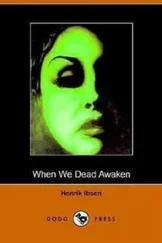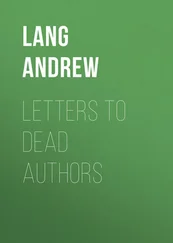Andrew Offutt - When Death Birds Fly
Здесь есть возможность читать онлайн «Andrew Offutt - When Death Birds Fly» весь текст электронной книги совершенно бесплатно (целиком полную версию без сокращений). В некоторых случаях можно слушать аудио, скачать через торрент в формате fb2 и присутствует краткое содержание. Жанр: Фэнтези, на английском языке. Описание произведения, (предисловие) а так же отзывы посетителей доступны на портале библиотеки ЛибКат.
- Название:When Death Birds Fly
- Автор:
- Жанр:
- Год:неизвестен
- ISBN:нет данных
- Рейтинг книги:5 / 5. Голосов: 1
-
Избранное:Добавить в избранное
- Отзывы:
-
Ваша оценка:
- 100
- 1
- 2
- 3
- 4
- 5
When Death Birds Fly: краткое содержание, описание и аннотация
Предлагаем к чтению аннотацию, описание, краткое содержание или предисловие (зависит от того, что написал сам автор книги «When Death Birds Fly»). Если вы не нашли необходимую информацию о книге — напишите в комментариях, мы постараемся отыскать её.
When Death Birds Fly — читать онлайн бесплатно полную книгу (весь текст) целиком
Ниже представлен текст книги, разбитый по страницам. Система сохранения места последней прочитанной страницы, позволяет с удобством читать онлайн бесплатно книгу «When Death Birds Fly», без необходимости каждый раз заново искать на чём Вы остановились. Поставьте закладку, и сможете в любой момент перейти на страницу, на которой закончили чтение.
Интервал:
Закладка:
Still, mac Art of Eirrin did not fret over that for which there was no help. They’d been undermanned aforenow. They had prevailed. They lived.
Well they knew this western coast of Gaul. Here, in these waters where Gallia and Hispania met, heavy swells were common. In crashing gouts of foam they broke dangerously near sunken rocks even where the water was deep. Farther north, off the River Garonne and the Saxon islands, tidal streams ran tricky and inconsistent as though designed by hunt-wise foxes. To run up this coast by night required not only men who knew what they were about but bold ones besides. Necessity bred boldness as kings did conflict. The night did offer cover, and western Gaul was stiff with the reivers’ foes.
Big brusque Guntram, the Gothic Count of Burdigala that would be Burgundy, craved their bodies for exhibition on a gibbet to placate his master King Alaric. Athanagild Beric’s son, who commanded the royal Garonne fleet for Alaric, yearned even more to capture them.
More enemies were the Saxons settled in the Charente region and the large islands nearby. They knew the reivers; they knew Cormac had not come by his Seax-knife-Saxon dagger-through amiable trade.
Nor was it likely that Sigebert the Frank, now chief customs assessor of Nantes, would have forgotten them. He’d set a cunning trap for Cormac and Wulfhere not two months previously-and failed to take them though he had them at swords’ points. He’d lost an ear for his trouble.
Ah, half the world was set against the self-exiled Gael of far green Eirrin, and he was not even taking Lucanor into account.
His reflections were most rudely interrupted. “Three ships on the steerboard side!” the lookout bawled. “They come fast under oar, from astern!”
Three! Cormac snatched up his helmet and went swiftly aft while he settled it on his head. Ordlaf the steersman greeted him with a nod.
“Yonder, I’d guess,” he grunted. “I see naught as yet.”
Cormac stared into the deep-blue gloaming. Three shapes emerged. Cloven water hissed white at their bows. Each was smaller than Raven but seaworthy and fast in the highest degree. Aye, Cormac knew them and for him a glance sufficed: Basque ships. They neared, well-rowed.
“Wotan!” Ordlaf burst out, in a voice of incredulous horror such as Cormac had not previously heard from the stolid Dane. “What phantoms be these?”
“Phantoms?” Cormac stared in puzzlement. “What is it ye mean, man? It’s ships I see on the breast of the sea, and men on them bent on a fight. Bad enough that is-what’s this of phantoms?”
Ordlaf looked at him as if he were mad while Ordlaf’s were the wild eyes of madness. From the crew’s sudden braying of panicky invocations of Wotan, Aegir and other gods, Cormac understood that something was badly wrong. Were his own eyes failing him? He squinted at the oncoming ships. Raven was undermanned and pursued, badly outnumbered, aye and undeniably. But it would take more than that to shake this crew of battle-hungry demons Wulfhere and he led. What then? What?
Wulfhere Skull-splitter himself burst through the uproar on knotty legs, seeking advice from the man on whose crafty counsel he depended. Cormac saw that his eyes, too, were wide aghast.
“Wolf! Do ye see them? Surely it’s from Nastrand itself those demons have voyaged to find us!”
“Nastrand?” Still not comprehending, Cormac heard his friend name the cold barren shore of Hell, where the corpses of cowards and perjurers were eaten by monsters till the end of time and breath. “Blood of the gods! Nastra-Wulfhere? What see ye there?”
For the second time Cormac received from eyes less than rational a look that questioned his sanity. “See? What is there to see? Rotted ships of death, crewed by liches!” Hearing himself, Wulfhere gathered up the reins of his own runaway control. “But we’ll soon cause the sea to cover those corpses-again!”
Again Cormac looked at the approaching trio of ships. He saw ships crewed by staring weaponmen. Is that the way of it , he thought. Illusion and seeming-and I immune!
He wasted no time in attempt to convince his fellows that what they saw was unreal. What mattered was to make them fight. An they were still the men he knew, they’d do so. He raised strong voice.
“All who row not, string your bows!” he commanded. “Swiftly, swiftly! Teeth of Fenris, be ye children to quake at sorcerous illusion? Ivarr-come man, feather me thatun standing by the mast! Those are men, men! ”
The three strange vessels were swiftly overtaking Raven . White water furled back past what all save Cormac saw as skeletal ships: naked wooden ribs, grown over with mussels and barnacles and trailing masses of dismal kelp like ragged nets. Sails blew aflutter in rotting rags from the yards. The oars that rose and dipped were decayed or broken. Yet in spite of all, the death-ships moved across the sea at a better pace than Raven .
Aye, and to all but the Gael their crews were men long since drowned.
Wulfhere saw horrid white eyes, that had rolled up to stare blankly like those of landed fishes. Blue-grey were their skins and slick with corruption, like wet slate. Sea-lice had eaten them here and there to form hideous patchwork. Such men were dead -and they rowed.
Those not naked wore garments that seemed only rotting sackcloth and leather; that hung in tattered ribbons from their ghastly bodies. In dreadful silence they brandished weapons yet able to bite, though corroded by brine.
With coldness like drift ice in his stomach, Ivarr obeyed Cormac’s order. Oh, he had no misgivings about his ability to hit his ghastly target. What the Dane dreaded and half expected was to see it continue standing with his arrow betwixt its visible ribs. What could an arrow be, to something dead and rotting that yet moved and challenged the living?
The bowstring said thunng and Ivarr’s barbed shaft keened out over the water accompanied by his curse-and prayer. The arrow skewered the shape by the mast. Through the belly it took him, and Ivarr saw the creature tumble and fall down, kicking. So saw the other archers, and so did Cormac mac Art, though what he saw topple was a living human, an armourless Basque.
“Well done!” Cormac called, as if ’twere an accomplishment more than standard, for the need for encouragement was obvious to him. He knew how to motivate men, by praise and threat, by shaming and challenge. “What ails the rest of yet, that ye gape and delay? Shoot for the rowers!”
Heartened at the falling of the supposed lich in the manner of an ordinary sailor of blood and flesh, they loosed their arrows in flights of ten. Speeding angry bees seemed to hum shrilly over the sea.
The Danes were marksmen, who made the finest bows and produced the most deadly archers in all the lands about the Baltic. Oarsmen in the foremost of the attacking vessels began to suffer.
“Ye see?” Wulfhere bellowed. “Weapons can destroy them-WE can destroy them! Hard about! To portside now, and ram that weed-grown hulk!”
Oars increased stroke on the same side of Raven as its great steering-paddle; those opposite were raised but not shipped. The slender pirate craft came about hurling white water in a close circle. The foremost Basque ship continued to plow in. Raven’s coppery beak was now directed at the broad side of the attacker. The Danes bent to their oars with renewed will and a savage enthusiasm.
Unlike her enemies, Raven was fitted for ramming. Her bows had been strengthened, and braced within, sheathed in scales of hammered copper without. Her dragon’s head laughed savagely the while she bore down on the enemy. And now the Basques saw what was intended, even as they saw their prey’s speed increase.
Читать дальшеИнтервал:
Закладка:
Похожие книги на «When Death Birds Fly»
Представляем Вашему вниманию похожие книги на «When Death Birds Fly» списком для выбора. Мы отобрали схожую по названию и смыслу литературу в надежде предоставить читателям больше вариантов отыскать новые, интересные, ещё непрочитанные произведения.
Обсуждение, отзывы о книге «When Death Birds Fly» и просто собственные мнения читателей. Оставьте ваши комментарии, напишите, что Вы думаете о произведении, его смысле или главных героях. Укажите что конкретно понравилось, а что нет, и почему Вы так считаете.
